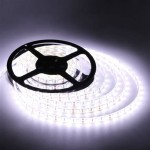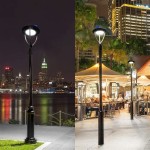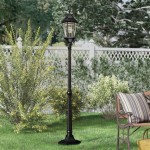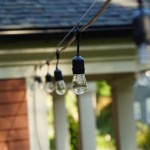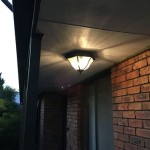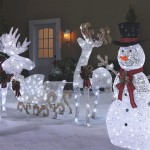Essential Considerations for Mounting Outdoor Lights
Illuminate your outdoor spaces with style and functionality by carefully mounting outdoor lights. This comprehensive guide will provide you with essential aspects to consider, ensuring your lights enhance your exteriors while ensuring safety and aesthetics.
1. Purpose and Functionality
Determine the primary purpose of your outdoor lights. Are they for security, ambiance, or highlighting architectural features? Consider the areas that require illumination, such as walkways, patios, or entrances. This will guide your choice of light fixtures and their placement.
2. Electrical Considerations
Safety is paramount when dealing with electricity. Before mounting lights, ensure you have the necessary electrical knowledge or consult a qualified electrician. Check the voltage requirements of the lights and verify that your electrical system can handle the load. Plan the wiring carefully, including any necessary switches or timers.
3. Fixture Selection
Choose light fixtures that complement your outdoor décor and withstand the elements. Consider the material, finish, and design of the fixtures to match your style and architectural details. For durability, opt for fixtures made from weather-resistant materials such as aluminum or stainless steel.
4. Height and Positioning
The height and positioning of your lights significantly impact their effectiveness. Wall-mounted lights should generally be 6-8 feet above the ground to provide adequate illumination. Post-mounted lights can be taller, reaching 10-12 feet. Consider the angles of the light beams to ensure they cover the intended areas without creating glare or light pollution.
5. Light Directionality and Spread
Choose lights with the appropriate beam spread for your needs. Narrow beam lights direct light over a short distance, ideal for highlighting specific areas. Floodlights provide a wider beam spread, illuminating larger spaces. Consider the shape of the fixture and the number of bulbs to achieve the desired spread and intensity.
6. Motion Sensors and Timers
Enhance the functionality of your outdoor lights with motion sensors or timers. Motion sensors activate lights only when movement is detected, providing security and convenience. Timers allow you to schedule lights to turn on and off at specific times, creating a welcoming atmosphere or deterring intruders.
7. Landscape Integration
Consider the overall landscape design when mounting outdoor lights. Use lights to accentuate trees, shrubs, and other features. Avoid cluttering the area with excessive lights; instead, use subtle illumination to create a harmonious and inviting ambiance.
By following these essential considerations, you can successfully mount outdoor lights that enhance the safety, beauty, and functionality of your outdoor living spaces. Remember to prioritize safety, choose fixtures that complement your aesthetics, and strategically place the lights to maximize their impact.

Replacing An Outdoor Light Fixture Concord Carpenter

Replacing An Outdoor Light Fixture Concord Carpenter

Replacing An Outdoor Light Fixture Concord Carpenter

How To Hang String Lights Outdoors

Replacing An Outdoor Light Fixture Concord Carpenter

Replacing An Outdoor Light Fixture Concord Carpenter

How To Install Outdoor Flush Mount Lights

How To Install And Wire Outdoor Light Fixtures Easy Home Diy Project

How To Install Outdoor Wall Lighting Light Fixtures Mr Electric

How To Install An Exterior Electrical Box For A Light Fixture On The Wood Siding
